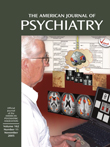The Capacity to Vote of Persons With Alzheimer’s Disease
Abstract
OBJECTIVE: The right to vote can be abrogated when persons become incompetent to cast a ballot. This applies particularly to people with Alzheimer’s disease, who at some point will lose capacity. A 2001 federal court decision offered the first clear criteria (“Doe voting capacity standard”) for determining voting competence, focused on understanding the nature and effect of voting and on the ability to choose. This article explores how persons with Alzheimer’s disease perform on these criteria. METHOD: The Doe standard was operationalized in a brief questionnaire, along with measures of appreciation and reasoning about voting choices. Performance was assessed in 33 patients attending an Alzheimer’s disease clinic and was related to dementia severity and demographic characteristics. RESULTS: The interview questions were scored with high reliability. Performance on the Doe questions, along with appreciation and reasoning, correlated strongly with Mini-Mental State Examination (MMSE) scores. Patients with very mild to mild Alzheimer’s disease generally retained adequate ability to vote, and most persons with severe Alzheimer’s disease did not. Performance was highly variable among persons with moderate Alzheimer’s disease. The desire to vote was a poor predictor of voting capacity. CONCLUSIONS: The capacity to vote, as embodied in the Doe voting capacity standard, can be measured simply and reliably. Structured assessment is particularly likely to be useful for people with moderate Alzheimer’s disease, whose performance cannot be predicted from MMSE scores alone. This approach can ensure retention of voting rights by capable persons and exclusion of clearly impaired persons from the voting booth.



